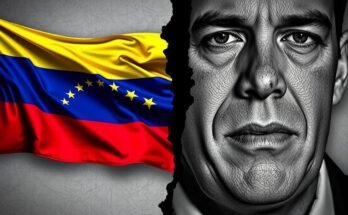Cuba’s shift to socialism under Fidel Castro and its dependency on the Soviet Union led to significant internal divisions and mass emigration. Key events include the Cuban Missile Crisis, economic challenges exacerbated by agrarian reforms, and strained U.S.-Cuban relations marked by military interventions. Castro’s regime struggled with production and property nationalization while maintaining rigid socialist policies amid changing Soviet relations. Although material conditions improved slightly in the 1970s, the U.S. embargo continued to shape Cuba’s socio-economic landscape.
Cuba’s trajectory towards socialism, heavily influenced by its growing alignment with the Soviet Union, led to profound societal divisions and a mass exodus of its citizens, particularly skilled workers and affluent individuals, mainly to the United States and Spain. The early years of Fidel Castro’s leadership saw critical support from the Soviet Union, which often placed Cuba in direct confrontation with the United States, most notably during the Cuban Missile Crisis of October 1962. This period brought the world to the brink of nuclear confrontation when the Soviets installed missile bases on the island, prompting a U.S. naval blockade and urgent demands for withdrawal. Despite initial support, Cuba faced severe shortages of food, fuel, and other essential goods. A second agrarian reform in the mid-1960s exacerbated economic struggles by reinforcing the country’s reliance on sugarcane, while attempts to export revolution through communist collaborations and civil conflicts negatively affected its international relations. The U.S. responded with military intervention in the Caribbean, notably during the Dominican Republic’s civil war in 1965 and the invasion of Grenada in 1983. Throughout the late 1960s, the Cuban government intensified its campaign against private enterprise by nationalizing numerous small businesses and elevating military personnel into top roles within the government and the Communist Party. After struggling with production incentives, Cuba reverted to centralized Soviet-style economic planning. The 1976 political reform marked the consolidation of power as Castro became both President of the Council of Ministers and of the Council of State. While the material conditions slightly improved in the 1970s, and Cuba garnered a notable position among developing nations, it lost much influence amongst non-aligned countries following its backing of the Soviet invasion of Afghanistan in 1979. During the 1980s, Cuba engaged in military conflicts in various nations, greatly affecting regional stability. Despite some apparent thawing in U.S.-Cuban relations, especially regarding emigration—such as the Mariel boatlift in 1980 and subsequent agreements facilitating annual legal migration—the enduring trade embargo, initiated in the early 1960s, has perpetuated tensions. The Soviet Union’s economic support remained crucial for Cuba during this period; however, a decline in Cuban-Soviet relations became evident towards the late 1980s amid the Soviet Union’s push towards liberalization, while Cuba maintained its rigid socialist policies.
The historical context of this article revolves around the Cuban Revolution, which culminated in Fidel Castro’s rise to power in 1959. This period marked Cuba’s significant shift towards communism, which led to close relations with the Soviet Union. The subsequent Cold War dynamics significantly influenced both Cuba’s internal politics and its foreign relations, particularly with the United States. Major events, such as the Cuban Missile Crisis and various attempts at revolutionary exportation, characterize the strained U.S.-Cuba relations solidified by economic embargoes and military interventions in the Caribbean and Central America. This complex relationship shaped Cuba’s economic dependencies and its social policies, particularly under the hardline governance of Castro.
In summary, Cuba’s evolution into a socialist state under Fidel Castro was heavily marked by the influence of the Soviet Union and contentious relations with the United States. Economic challenges persisted throughout Cuba’s attempts to assert itself in the international arena, leading to significant social upheaval and mass emigration. Despite some progress in internal conditions and foreign relations, the enduring U.S. embargo and shifts in Soviet policy have left Guatemala in a fragile state. This historical narrative illustrates the intricate balance of power, ideology, and socio-economic realities within Cuba during the Cold War and beyond.
Original Source: www.britannica.com




